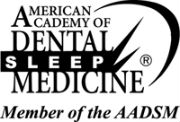Why a Family Dentist Discourages Thumb Sucking

Your family dentist may have noticed your child's thumb sucking habit during your routine checkup and advised against it. While it may seem like the only way to pacify your child, your dentist has a good reason for discouraging the behavior. It is advisable to correct the habit from an early age before it results in dental issues later in life. Parents need to understand the negative impacts, side-effects and what they can do to resolve the issue.
How thumb-sucking affects a child’s teeth
Thumb sucking is how many children respond to boredom and stress. If a toddler sucks their thumb, it may not cause dental issues. Usually, children tend to quit thumb sucking once their teeth start erupting. Sometimes, the child may have developed other coping mechanisms as they learn to speak and communicate their feelings. However, if the habit continues as the child ages, it becomes a concern, since it can affect their bite and the alignment of their permanent teeth. Some studies show that thumb sucking can have adverse effects on a child’s jaw as early as two years.
One of the major concerns of thumb sucking is how it causes open bite, a bite misalignment when the front teeth fail to erupt fully and get pushed forward. Since the teeth are forced out of position, they start to erupt crookedly. This becomes a major problem if the thumb sucking persists until when the permanent teeth start coming in, often between ages five and seven. Thumb sucking in teenagers may lead to needing braces or other orthodontic treatment that could be prevented if the child stops the habit before it results in lasting consequences.
Other problems that persistent thumb sucking may cause include:
- Pronunciation problems or speech impediment
- Malformed mouth roof
- Misaligned jaw
- Overbite
- Skin problems (around the thumb)
How to stop a child from thumb sucking
Many parents make an effort to stop the habit for their child, but it is ultimately up to the child to stop. Some kids outgrow the habit as they grow older. However, the parent can consider some options if their child continues to suck their thumb. There are many methods to discourage the habit in children before it causes oral issues.
First, parents must be supportive and use positive reinforcement methods to encourage their child to stop thumb sucking independently. Scolding and punishing the kid will not do any good, and the child may continue the habit regardless. If the child is receptive and expressed willingness to stop the habit, parents can use a band-aid on the finger or thumb during the day or remove the finger from their mouth when they sleep.
Final note
As parents try to help the child stop thumb sucking, they must remember that the habit is not a sign of developmental or physiological issues. The child may require the help of the family dentist to quit the habit. Since the behavior is a subconscious response, children may require support and guidance to stop the habit when they reach the proper development stage.
Request an appointment here: https://www.ultimatesmiles.com or call North County Cosmetic and Implant Dentistry at (760) 940-2273 for an appointment in our Vista office.
Check out what others are saying about our services on Yelp: Read our Yelp reviews.
Recent Posts
If you have visited a family dentistry office, you might have heard about protecting your tooth enamel. Because of dentists’ efforts, there is more awareness about tooth enamel and its importance. This is a protective outer shell for the outside of your teeth. Without it, the teeth would be at a higher risk for infection…
When it comes to keeping your teeth clean, you probably know that regular brushing and flossing, as well as visits to a Family Dentist near Vista, are all necessary to prevent cavities. But you may underestimate the importance of flossing. Flossing can help prevent gum disease. It can also help you maintain a healthy smile.Flossing…
Most dental care can be done at your regular dentist on your schedule. However, some types of care need the immediate attention of an emergency dentist. Assessing the type and severity of your symptoms is the key to determining when you need emergency care. The faster you act, the better your outcome is likely to…
An emergency dentist is unique from a general dentist in the sense that they have the team, resources, hours and willingness to treat dental emergencies. A dental emergency may include a range of mouth injuries or developing oral health concerns. It can be helpful to fully understand when to see an emergency dentist for prompt…







